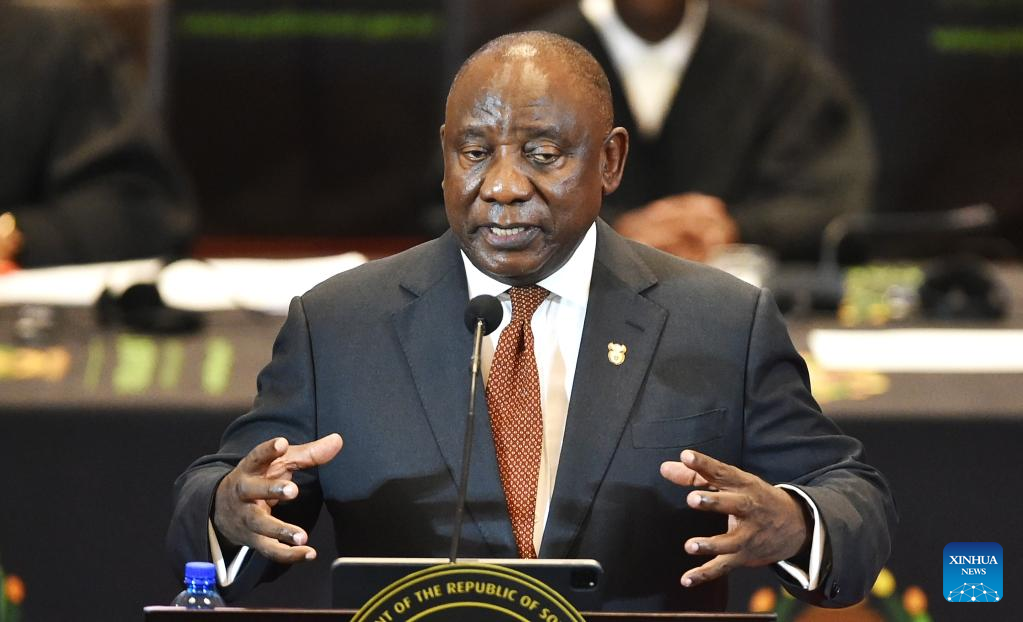To deal more effectively and urgently with the challenges, Ramaphosa said he will appoint a minister of electricity in the presidency to assume full responsibility for overseeing all aspects of the electricity crisis response…reports Asian Lite News
South African President Cyril Ramaphosa has declared a national state of disaster to address the country’s electricity crisis.
“The National Disaster Management Center has consequently classified the energy crisis and its impact as a disaster. We are therefore declaring a national state of disaster to respond to the electricity crisis and its effects,” Ramaphosa said while delivering his 2023 State of the Nation Address in Cape Town.
“The state of disaster will enable us to provide practical measures that we need to take to support businesses in the food production, storage and retail supply chain, including for the rollout of generators, solar panels and uninterrupted power supply,” he said, adding that it will also enable the country to exempt critical infrastructure such as hospitals from load shedding.
To deal more effectively and urgently with the challenges, Ramaphosa said he will appoint a minister of electricity in the presidency to assume full responsibility for overseeing all aspects of the electricity crisis response.
“As we outline our agenda for the year ahead, our most immediate task is to dramatically reduce the severity of load shedding in the coming months and ultimately end load shedding altogether,” the President added.
South Africa is currently facing a severe electricity crisis.
South Africans have endured power cuts for years but 2022 was the worst on record with 205 days of rolling blackouts, as aging coal-fired power plants broke down and state-owned power utility Eskom struggled to find the money to buy diesel for emergency generators.
So far this year, there have been outages every day.
The situation worsened again last month when Eskom said it would implement more cuts because of breakdowns at 11 coal-fired generating units.
Loadshedding was escalated to level 6, which entails removing 6,000 megawatts (MW) worth of power from the grid in order to rebalance demand and supply. This can result in outages lasting 4.5 hours at a time and totaling 12 hours a day for households and businesses.
At peak times, demand in South Africa averages between 28,000 MW and 34,000 MW.
The electricity crunch has been years in the making, a product of delays in building new coal-fired power stations, corruption in coal supply contracts, criminal sabotage and failures to ease up regulation to enable private providers to swiftly bring renewable energy on tap.
Ramaphosa said on Thursday he would appoint a minister of electricity within the presidency to focus solely on the crisis.
He also pledged to continue with South Africa’s partly donor-funded transition to cleaner energy, with planned investments of 1.5 trillion rand ($84.52 billion) in the next half-decade.
He said the government was working on a mechanism for targeted basic income support for the most vulnerable, within fiscal constraints.
Ramaphosa started his speech about 45 minutes late after opposition lawmakers, mainly from the far-left Economic Freedom Fighters (EFF) party, disrupted proceedings. After the speaker of parliament told them to leave, a group of EFF MPs tried to barge onto the stage before security intervened.
Eskom has racked up debts and struggled to maintain the country’s coal-powered electricity infrastructure. The electricity provider was mired in corruption scandals under former President Jacob Zuma.
Declaring a state of disaster allows the government to follow emergency procurement procedures with fewer regulations and bureaucratic hurdles.
It also unlocks additional funding for the government to quickly buy new energy equipment, such as generators and solar panels.
South Africa’s biggest opposition party, the Democratic Alliance, has vowed to challenge Ramaphosa disaster declaration in court.
It claimed that Ramaphosa’s African National Congress abused procurement processes during the pandemic and issued nonsensical regulations.
Meanwhile, the left-wing Economic Freedom Fighters walked out en masse before the State of the Nation Address. Some members of the party stormed the stage, causing Ramaphosa’s speech to be delayed by 45 minutes.
ALSO READ-Pope’s Africa trip spotlights conflict, church’s future

